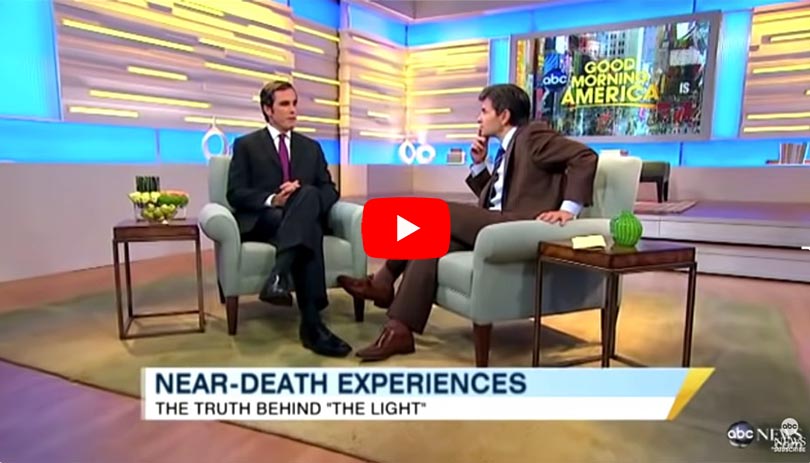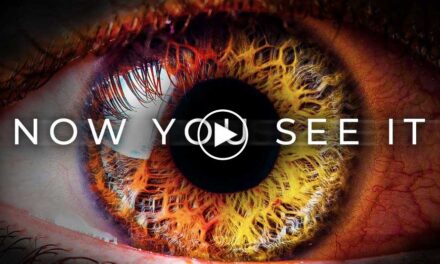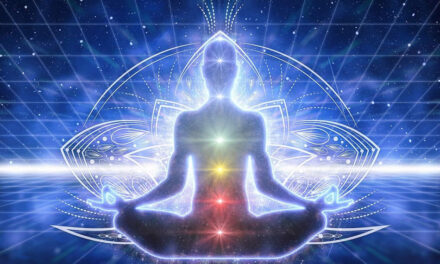I’ve noticed a rise in the number of people who say they take it for granted that there is no afterlife.
As heavens and hell fade from secular society, the scientific worldview offers no decisive proof about what happens when the physical body dies. That should make the afterlife an open question, like speculating about whether a plant orbiting around a distant star might have life on it. But somehow the absence of proof has made countless people decide that death is final.
As sticky and complicated as this issue is, it can be broken down into three perspectives that in themselves are simple. The perspective of a devout believer supports life after death; the skeptical perspective denies it; the undecideds stand in the middle. The fundamental issue is whether the afterlife can be transformed into a viable question.
I believe it can, once we return to basics, including the most boring basic, which is to clearly define our terms. That sounds boring, but as it turns out, defining our terms answers the question.
The most basic term in this case is consciousness, because when arguing over the possibility of an afterlife, much confusion is caused by asking the wrong questions. If you don’t specify what consciousness is, you wind up worrying about the survival of the soul, or of “me,” the individual ego-personality. And if those pitfalls are avoided, Eastern traditions are filled with equally misleading notions of Jiva, Atman, and Brahman, or of Nirvana and Satori.
If two people agree on their definition of consciousness, they will agree on the existence or non-existence of an afterlife. For a skeptic whose core belief is that all things can be explained through materialism (data, experiments, measurements, etc.), there is no doubt that the afterlife is spurious — not because it actually is, but because a skeptic’s worldview forbids it to exist. By the same token, a devout believer holds fast to a worldview where the non-existence of a personal God is impermissible, even unthinkable, and therefore the afterlife acquires its reality by association with the deity.
Seeing this rigidity on both sides, is there a definition of consciousness completely detached from all belief systems, which means the absence of bias, predisposition, received wisdom, rumor, myth, group pressure, wishful thinking, fear, and mental figments of every sort? I believe so.
Every reasonable person, I think, will accept that consciousness, as experienced by humans, is the awareness of two things: that we exist and that we experience. By extension, a reality that cannot be experienced is moot. By this measure, UFOs, angels, the afterlife, and the quantum vacuum exist on the same playing field. They are suppositions and inferences.
If we toss out suppositions and inferences, what can we truthfully say about consciousness? By this I mean what can we say that no reasonable person will disagree with? Here we run into a complicated situation because certain aspects of consciousness require extended discussion and a back-and-forth between people of good will. Such a setup is rare, unfortunately, but at least I can relate a few things that I’ve been able to convince people of over the years.
To crack this allegiance requires arguments like the following:
- When you get wet, do you call it “my” wet? Some things happen to us personally but turn out to have a general existence.
- If you sing “The Star-Spangled Banner” as you walk down the street, did the song walk down the street with you?
- If you imagine your mother’s face, where is that mental image located? The brain has no pictures in it, and no light. When you imagine your mother’s face, you don’t consult a directory of facial characteristics the way computer recognition software does — you simply call up what you wish to see.
- Where is your self located? There is no neurological evidence of a region of the brain that contains the self, and even if researchers claimed such a region existed, it would have to contain everything attached to you as a self, including your life history.
But in everyday life, the argument is fairly easily based on physics.
- Cosmologists and quantum physicists agree that spacetime originated in a domain (referred to as the zero point, quantum vacuum state, or the realm of pure mathematics) that isn’t in time and space.
- The entire universe, as well as individual subatomic particles, emerged from this pre-created state, which has no qualities we would recognize such as linear time, dimensionality, solidity, energy, etc.
- At the very least, all creation stories, scientific or not, converge on the creation of something out of nothing. Beyond our experience of reality in spacetime, there is a field of infinite potential and unbounded possibilities.
- As the reality of space, time, matter, and energy appeared and continues to appear, the existence of consciousness must be accounted for. There are only two viable possibilities that are taken seriously. The “matter first” position holds that the mind has its origins in matter and energy (to which some theorists add information). The “mind first” position holds that consciousness is the source of everything, including matter and energy.
Even if other, as yet unknown, kinds of evidence emerged — such as the current, quite baffling existence of so-called dark matter and dark energy, which don’t follow the rules of visible matter and energy — it would be absorbed into pre-existing stories that we live by.
In deciding between “mind first” and “matter first,” the crux is a single question. Is it more probable that matter somehow learned to think or that the mind can create matter? It seems astonishing to me that more than 90% of scientists are so conditioned to reduce every issue to matter and energy, that they accept without investigation the assumption that the sugar in a sugar cube, once ingested, can travel past the blood-brain barrier and suddenly think, feel, wish dream, and do science.
No one has remotely come close to showing the point in evolutionary history where ordinary molecules acquired consciousness. Therefore, the very notion that the brain is a privileged object, the only “thing” in creation that has consciousness, is untenable. The brain is simply an ordinary object composed of ordinary atoms and molecules. It didn’t become consciousness through the random combination of complex organic chemicals.
The contrary position, that consciousness pre-exists the physical world, has some simple evidence on its side. The simplest, of course, is that the impossibility of the “matter first” position leaves only one other viewpoint that can reasonably be true. But to most people, such an argument feels like sleight of hand. Therefore, we can point to the human brain, where every sensation, image, feeling, and thought pushes brain chemicals around, redirects them to various parts of the body, causes vital signs to change either slowly or abruptly, and actually produces some chemicals, such as neurotransmitters, out of nothing.
The creation of something out of nothing has been lurking in the background as the ultimate question, yet concerning everyday experience, the mystery becomes both personal and self-evident. If someone whispers, “I love you” in your ear, the mind-body system will display hundreds of changes dissimilar to what occurs if the whispered words are “I have a gun pointed at your heart.” The deciding factor isn’t material in the slightest; it consists of mental activity, the continual production of thoughts, words, meaning, purpose, direction, intention, and so on.
It is far from impossible to convince reasonable people that these points are true, and they stem from defining consciousness in the most basic, intuitively validated way.
As to the specific issue of an afterlife, consider what lies on the side of its existence:
- Consciousness, being nonvocal, is not subject to birth and death
- Even in physicalist terms, there must be a pre-created state beyond time and space. Birth and death, being aspects of linear time, are not present there.
- An argument can be mounted that certain abstract experiences, such as mathematics and information, have an indestructible aspect, again immune to birth and death.
- Body, mind, and the world “out there” cannot be divorced from conscious experience. The only reasonable location for all of them is in consciousness itself.
- If all of the above are true, then nothing exists except as a modified state of consciousness. Some of these states we identify as matter and energy, but this is simply a habit of mind built up for cultural reasons. There have been societies where “mind first” was just as self-evident as “matter first” is to us.
Having laid out, in truncated form, the argument for consciousness as the basis of reality, not everyone may be willing to follow the clues that lead to an afterlife. But that isn’t as important as realizing that we have tended to ask the wrong questions.
One can devote a book to untangling the various possibilities for consciousness to persist after the end of the body (I wrote one, Life After Death). In the end, however, the stubborn way that old stories cling to us, and we to them, muddies the issue and opens the way for vehement partisans who refuse to see that they are flogging second-hand opinions.
Additional Credit
DEEPAK CHOPRA MD, FACP, FRCP, founder of The Chopra Foundation, a non-profit entity for research on well-being and humanitarianism, and Chopra Global, a whole health company at the intersection of science and spirituality, is a world-renowned pioneer in integrative medicine and personal transformation.
Chopra is a Clinical Professor of Family Medicine and Public Health at the University of California, San Diego, and serves as a senior scientist with Gallup Organization. He is the author of over 90 books translated into over forty-three languages, including numerous New York Times bestsellers.
His 91st book, Total Meditation: Practices in Living the Awakened Life explores and reinterprets the physical, mental, emotional, relational, and spiritual benefits that the practice of meditation can bring. Chopra has been at the forefront of the meditation revolution for the last thirty years.
His latest book, Living in the Light co-authored with Sarah Platt-Finger. TIME magazine has described Dr. Chopra as “one of the top 100 heroes and icons of the century.” www.deepakchopra.com
Additional Afterlife Videos 🎞️
A new scientific study published today found that some people who went into cardiac arrest were brought back to life and had a recollection of dying. NBC News’ Anne Thompson spoke with the lead author of the study about the findings.
Is there an afterlife? Here’s what he saw while he was ‘dead …
Near-Death Experiences: What we know about death, immortality, and near-death experiences
This Video Will Give You Goosebumps – Dr. Eben Alexander On Afterlife
Is There An Afterlife? Near-Death Survivors Explain ‘Life on Other Side’: Stories Point to Heaven?
![]()

























